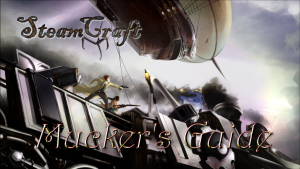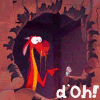
Recently, Margaret Weis Productions has announced and launched the Cortex Plus Creator Studio (CPCS) program in conjunction with DriveThruRPG.com. This new program allows fans such as yourself to offer supplemental materials, such as setting hacks, using the Cortex Plus system of rules and its variants. To do so, you’ll need a copy of the Cortex Plus Hacker’s Guide, which currently serves as “the” rules for Cortex Plus Action, Cortex Plus Heroic, Cortex Plus Drama, and Cortex Plus Fantasy Heroic variants. Many fans have been excited to see what the rules can do, because Cortex Plus offers a lot of possibilities due to its simplicity and flexibility. Because gameplay is heavily focused on character interactions, the rules facilitate twists and turns in the plot. Each system variant, then, provides a different flavor, or style of play.
As the developer for the upcoming Cortex Plus Action corebook, I feel that the Cortex Plus Creator Studio program is great for fans–especially since the bulk of MWP’s games, such as the Firefly, Smallville, and Marvel RPGs, have been based off of licensed properties. Now, licensing and contracts isn’t something I normally talk about, because they are fairly similar industry-wide, but I do want to point out another reason why I think this is an interesting development. When a writer or a game designer works on a game, we typically sign what’s known as a “work-for-hire” contract. (In 10+ years, I have never signed a contract in gaming that wasn’t work-for-hire, even on company-owned properties that aren’t licensed from TV/Movie studios.)
Signing a work-for-hire contract means that legally we don’t own the work we do, and once we’re paid for that work the companies take our contribution and use that as they see fit. While every license, freelancer, contract, and company is different, writing under these terms typically means we have less flexibility as creators than if we were to do the work ourselves. The CPCS gives both fans and creators more control, because while the agreement does have some limitations, the work you upload is based on your own settings and design ideas with no oversight. The only requirement is that your work is tied to the stellar Cortex Plus Hacker’s Guide. Thus, while your material is supplemental, you decide what you want to do with it.
If you’ve got a setting hack or a pile of Distinctions/Talents/Powers, etc. you’ve been sitting on, I encourage you to check out the new program. Just remember: licenses such as Star Wars and Firefly aren’t part of this program. The CPCS is strictly meant to be used for your own worlds, your own stories, and your bursts of creativity and brilliance.
I’m looking forward to seeing what comes next for Cortex Plus, and I hope that its future will include you.



